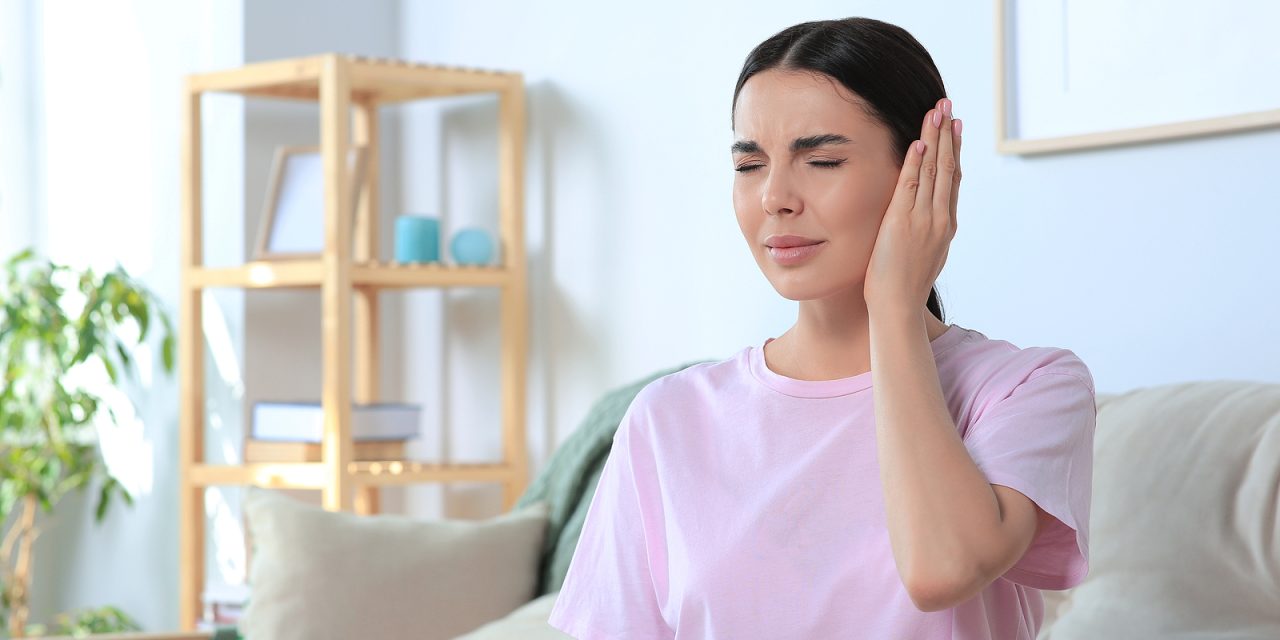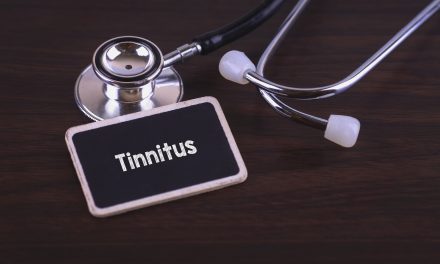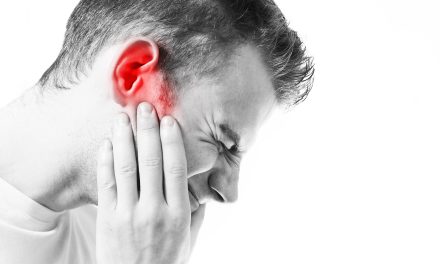Tinnitus is a common condition characterized by a ringing, buzzing, hissing, or roaring sound in one or both ears that may be constant or come and go. While it’s often not serious, it can significantly impact daily life. Although there’s no universal cure for tinnitus, myriad at-home strategies can help manage the symptoms and provide relief. Tinnitus sufferers can explore a variety of approaches, including lifestyle changes, sound therapy, and relaxation techniques, to alleviate their discomfort.
Lifestyle modifications to reduce tinnitus symptoms include managing stress levels, avoiding exposure to loud noises, and limiting intake of substances that can exacerbate tinnitus, such as caffeine and alcohol. Some individuals may find that using white noise machines or apps that provide soothing sounds can mask the inner noise caused by tinnitus, making it less distracting. In tandem with at-home strategies, it’s essential to consult healthcare professionals who may offer additional treatment options, including hearing aids or other assistive devices if hearing loss is involved, or even psychological approaches if tinnitus has a significant mental health impact.
Key Takeaways
- Tinnitus management at home includes stress reduction and avoiding exposure to loud noise.
- Masking techniques with sound can help minimize the perception of tinnitus.
- Consultation with healthcare professionals is crucial for personalized treatment options.
Understanding Tinnitus
When managing tinnitus, recognizing the symptoms and uncovering potential causes is vital. This understanding paves the way for targeted and effective home remedies.
Identifying Symptoms
Tinnitus is characterized primarily by the perception of noise or ringing in the ears when no external sound is present. Symptoms may manifest as ringing, buzzing, whistling, hissing, or clicking. The intensity can vary, with some individuals experiencing severe symptoms that impact their daily function. It’s crucial to note that these auditory sensations may be constant or intermittent and could involve one or both ears.
Exploring Causes and Triggers
While tinnitus can emerge without an obvious trigger, several factors are known to contribute to its development. Common causes include:
- Loud Noise Exposure: Prolonged exposure to noisy environments can damage the inner ear and lead to hearing loss and tinnitus.
- Stress: High levels of stress or anxiety can exacerbate tinnitus symptoms, creating a vicious cycle.
- Earwax Build-up: Accumulation of earwax can block the ear canal and cause hearing disturbances, including tinnitus.
- Aging: Age-related hearing loss presbycusis, can often result in tinnitus.
- Underlying Conditions: Various diseases, such as heart or blood vessel issues, can be associated with tinnitus. It’s critical to consult a healthcare professional to determine if a condition could be the underlying cause.
The onset of tinnitus may also result from specific medications, head or neck injuries, and other health conditions. Accurate identification of these triggers is a necessary first step for those seeking relief from tinnitus at home.
Lifestyle Modifications
Making specific changes to one’s daily routine can significantly influence the severity and impact of tinnitus. Finding the right balance in diet and physical activity can help manage symptoms more effectively.
Diet and Hydration
One’s diet can have a considerable effect on tinnitus symptoms. It is recommended to reduce salt intake, which can exacerbate tinnitus by increasing blood pressure and potentially worsening any underlying blood vessel conditions associated with the ear ringing. Hydration should also be a priority, as dehydration can lead to thicker blood and potentially more pronounced tinnitus symptoms. Foods and drinks that contain caffeine and alcohol are also advised to be consumed in moderation, as they can sometimes increase the intensity of tinnitus.
- Foods to Include:
- Fresh fruits and vegetables
- Lean proteins
- Healthy fats like those found in avocados and nuts
- Foods to Limit:
- Salty snacks
- Processed meats
- Sugary treats
Exercise and Physical Activity
Regular exercise is another pillar of managing tinnitus at home. Exercise improves overall circulation, which can help reduce the impact of tinnitus. According to general health recommendations, they should aim for at least 150 minutes of moderate aerobic exercise or 75 minutes of vigorous activity weekly. Additionally, incorporating activities that promote relaxation, such as yoga or tai chi, may improve sleep quality, offering further relief from tinnitus symptoms.
- Recommended Activities:
- Brisk walking
- Swimming
- Cycling
Physical activity should be balanced and should not be overly strenuous, as this can, conversely temporarily heighten tinnitus symptoms. Individuals often report better sleep after engaging in such activities, which is crucial for alleviating the stress that can accompany tinnitus. Those who smoke are also encouraged to seek help to quit, as smoking can impede blood flow to the auditory system and make tinnitus symptoms more noticeable.
Home Remedies for Symptom Management
Effective management of tinnitus symptoms can often be achieved through strategic at-home techniques, including herbal supplements and do-it-yourself white noise solutions. These methods may help to alleviate the perceived intensity of tinnitus.
Herbal Supplements
Ginkgo biloba is frequently mentioned as a potential herbal remedy due to its circulation-enhancing properties. Although results vary, some individuals may notice improved symptoms when taking this supplement. It is imperative for anyone considering herbal supplements to consult with a healthcare provider to ensure safety and appropriate usage.
DIY White Noise Solutions
Creating a soothing auditory background using white noise can help minimize the impact of tinnitus. Individuals might use a fan or play soft music to generate a constant, ambient sound that can mask the ringing. Additionally, readily available masking devices that specifically emit white noise can efficiently manage tinnitus symptoms at home. These devices range from specialized machines to smartphone applications designed for tinnitus relief.
Professional Medical Interventions
In the treatment of tinnitus, there are times when home remedies may not suffice, and professional medical intervention becomes necessary. Consulting a healthcare professional is crucial if tinnitus persists or worsens. Let’s explore when to seek medical attention and the role of medications in managing tinnitus.
When to Consult a Doctor
Individuals should consult a doctor if tinnitus occurs suddenly or if it accompanies hearing loss or dizziness. A doctor’s visit is also warranted when tinnitus is localized to one ear only or if it severely impacts daily life. A healthcare provider will often diagnose the condition based on symptoms and may seek an underlying cause, influencing treatment options.
Understanding Medications
The use of medications can be a crucial component in managing tinnitus. While tinnitus has no cure, certain drugs can help mitigate the symptoms. For example, low doses of anti-anxiety medications like Valium or antidepressants such as Elavil may provide relief. Additionally, patients with tinnitus must be cautious about medicines like aspirin, as high doses have been linked to worsening of tinnitus in some cases. Always discuss medication options with a healthcare provider who can tailor the treatment to the individual’s condition.
Hearing Aids and Assistive Devices
For individuals with tinnitus, hearing aids and assistive devices offer a practical approach to managing symptoms. These devices can amplify ambient sounds, thereby reducing the focus on tinnitus.
In-ear Solutions
Hearing aids: Tailored to the user’s auditory profile, hearing aids improve hearing and provide tinnitus relief. They increase the volume of external noise, which can help mask the tinnitus sound. Some hearing aids come with dedicated tinnitus masking features that play white noise or therapeutic sounds to help distract from the ringing.
Earbuds and Headphones: While ordinary earbuds and headphones don’t treat tinnitus directly, specialized types are designed to work with smartphones and other audio devices to provide sound therapy. This includes music and specially designed tinnitus relief sounds or white noise generators. Users must keep the volume safe to avoid exacerbating tinnitus or causing hearing damage.
Masking Devices: Separate from hearing aids, these devices can be worn in the ear and are similar to earplugs but produce a constant, low-level white noise that can help to mask the tinnitus symptoms. This sound can distract a person’s attention from the tinnitus, potentially making it less noticeable.
Psychological Approaches
In managing tinnitus at home, psychological strategies focus on reducing the distress it causes. They do not cure the condition but can significantly improve quality of life by addressing associated mental health issues like anxiety and depression. The key is to engage in techniques that reframe the individual’s relationship with the condition.
Cognitive Behavioral Therapy
Cognitive Behavioral Therapy (CBT) is a structured, time-limited approach that helps individuals with tinnitus to identify and reframe negative thinking patterns. By challenging unhelpful beliefs and learning coping strategies, CBT for Tinnitus can lead to a reduction in tinnitus-related anxiety and stress. This approach is efficient when tailored to specific symptoms and concerns.
Mindfulness and Relaxation
Practicing mindfulness and relaxation techniques can help mitigate the effects of tinnitus by focusing attention away from the ringing and towards a calmer, more centered state. Techniques such as deep-breathing exercises, progressive muscle relaxation, and guided imagery promote a relaxation response, helping to alleviate symptoms of stress and depression. Mindfulness meditation has been shown to help people become less reactive to distressing symptoms and more accepting of their present experiences.
Sound Therapy Strategies
Sound therapy offers techniques to alleviate tinnitus symptoms, often experienced as ringing, hissing, clicking, or buzzing in the ears. It leverages specific sounds to redirect the brain’s focus and reduce the perception of tinnitus.
Tinnitus Retraining Therapy (TRT)
Tinnitus Retraining Therapy combines counseling with sound masks to teach the brain to ignore the unwanted sounds of tinnitus. Counseling aims to increase one’s understanding of tinnitus and decrease their adverse reaction to the sounds. Subsequently, sound therapy utilizes constant, low-level white noise to promote habituation—training the brain to deemphasize the bothersome noise of tinnitus over time.
Masking Sounds and Music
Introducing masking sounds can provide immediate relief by covering the sounds of tinnitus with more pleasurable or less intrusive sounds. Soothing sounds such as ocean waves, rainfall, or soft music can be played through devices, especially when tinnitus is most bothersome. This approach doesn’t reduce tinnitus but makes the ringing or hissing sounds less noticeable and can improve relaxation and concentration.
Alternative Therapies
Alternative therapies for tinnitus offer routes to potential relief without relying on medication. These methods focus on relaxation and can be particularly beneficial for individuals whose tinnitus is exacerbated by stress.
Acupuncture
Acupuncture, a traditional Chinese medicine practice, involves inserting thin needles into specific points of the body. For some, it may alleviate ear ringing by promoting relaxation and circulation. According to Healthline, determining the underlying cause of tinnitus is essential, and sometimes, acupuncture can be part of a multifaceted approach to manage the symptoms.
Yoga and Meditation
Yoga and meditation focus on holistic well-being, combining physical postures with breath control and meditation to reduce stress. The relaxation gained through these practices can be beneficial for managing tinnitus. Medical News Today notes the potential benefits of both yoga and meditation for individuals with tinnitus, suggesting that they may help diminish the condition’s impact on one’s quality of life.
Tinnitus and Sleep
Individuals with tinnitus often find sleep elusive due to the persistent sounds they experience. Providing strategies to improve sleep quality can offer relief and is crucial to managing tinnitus effectively.
Improving Sleep Quality
Create a Quiet Environment: They should ensure their sleeping area is as quiet as possible. Sometimes, using sound-masking devices or earmuffs can help create a more silence-friendly environment.
- Soft Background Noise: Introducing soft, non-disruptive sounds such as white noise or gentle music can also aid those with tinnitus by providing a soothing backdrop to help them fall asleep.
Consistent Sleep Habits: They should establish a regular bedtime routine involving activities like reading or taking a warm bath, which promote relaxation. Avoiding screen time close to bedtime is essential, as this can disrupt sleep.
Managing Stress: Stress exacerbates tinnitus, which can further impact sleep quality. Relaxation exercises, such as deep breathing or meditation, reduce stress and facilitate a smoother sleep transition.
By addressing the specific challenges tinnitus presents during bedtime, they can attain a more restful night’s sleep, which can significantly improve their overall quality of life. It should be noted, however, that persistent insomnia or worsening tinnitus should prompt a visit to a healthcare provider for more personalized management options.
Connecting with Others
In the journey to alleviate tinnitus symptoms, individuals may find solace and practical advice by engaging in support groups and communities. These platforms can offer coping techniques, reduce feelings of isolation, and help manage the stress, anxiety, and depression that often accompany tinnitus.
Support Groups and Communities
Support groups provide a caring environment where people with tinnitus can share their experiences and learn from others. Typically, these groups, either online or in person, facilitate discussions around managing symptoms and finding relief. They serve as a valuable resource for exchanging knowledge about coping techniques effective in reducing the intrusiveness of tinnitus.
- Online Forums: Online communities can be accessed conveniently, offering a trove of shared experiences and advice available at any hour, which can be particularly beneficial for managing stress-induced tinnitus late at night.
- Local Meetings: Some may prefer face-to-face interactions through local support group meetings. These gatherings offer a chance to connect personally with individuals who understand the challenges of living with tinnitus.
He or she learns strategies to deal with the emotional outcomes, such as anxiety and depression, that tinnitus may provoke. The sense of community and understanding in support groups often becomes a cornerstone of their coping strategy, providing both emotional relief and practical assistance.
Ongoing Research and Development
Research into tinnitus treatments is advancing, with numerous studies conducted to find faster and more effective solutions for this persistent health condition. In the United States, over 50 million people experience tinnitus, and understanding how to manage it is a crucial focus of contemporary audiology research.
One of the emerging treatments for tinnitus reported by WebMD involves a new kind of therapy, which is in the experimental stage but shows promise for rapid relief. Studies are examining various approaches, ranging from sound therapy to pharmacological innovations.
| New Treatment Possibilities | Expected Outcome |
|---|---|
| Experimental Therapies | Relief from Symptoms |
| Technology-based Solutions | Accessibility Increase |
| Pharmacological Advances | Improved Effectiveness |
Scientists from the University of Auckland have expressed optimism about a trial of a novel treatment for tinnitus, hinting at a potential breakthrough facilitated by recent technological progress. The effectiveness of these possible new treatments is a significant aspect of current tinnitus research, aiming to help those affected find relief faster.
Researchers at institutions such as Harvard Health and ScienceDaily are dedicated to discovering a cure, indicating that the trajectory of tinnitus research is one of progressive understanding and innovation. As research progresses, the introduction of new treatments may soon offer hope to many seeking to alleviate the symptoms of this challenging condition.
Frequently Asked Questions
In this section, individuals seeking to understand and manage tinnitus will find answers about current treatments, the role of supplements, natural resolution, home remedies, the impact of hydration, and the utility of non-invasive techniques.
What are the latest advancements in tinnitus treatment?
Researchers are continually exploring new treatments for tinnitus, including advanced sound therapy and tailored cognitive behavioral therapies, to address the neurological aspects of the condition.
Can specific vitamins or supplements like B12 or Zinc alleviate tinnitus symptoms?
Evidence suggests that vitamin B12 or zinc supplements may benefit individuals with tinnitus, especially those with a diagnosed deficiency that could exacerbate their symptoms.
Is it possible for tinnitus to resolve on its own over time?
In some cases, notably when tinnitus is related to a temporary condition such as exposure to loud noise or earwax buildup, symptoms may diminish or resolve without intervention over time.
Are there any effective home remedies to reduce tinnitus discomfort?
Lifestyle changes, such as reducing caffeine and managing stress levels, can be effective home remedies to decrease some individuals’ perception and discomfort of tinnitus.
How does staying hydrated relate to the management of tinnitus symptoms?
Proper hydration is crucial for overall health and can impact ear function; while it’s not a direct treatment, staying hydrated can help maintain the health of the auditory system.
What are non-invasive techniques to relieve tinnitus, such as acupressure or sound therapy?
Non-invasive treatments like acupressure or sound therapy, such as the use of white noise machines or hearing aids, can help mask tinnitus symptoms and provide relief for many sufferers.

















